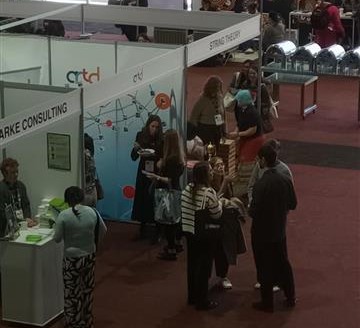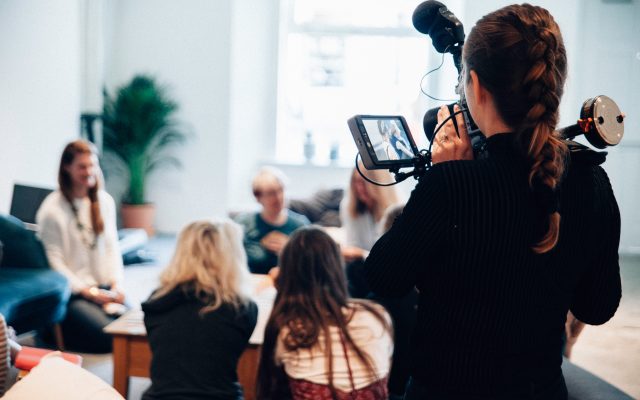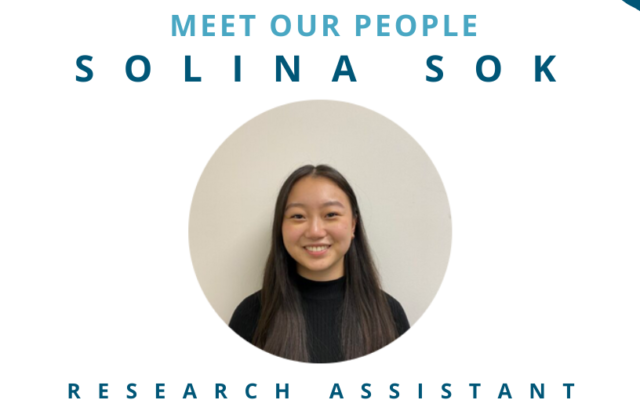
AES Conference – Day 2, ‘the inspirening’
Several of our staff are at the AES Conference this week. Whether you’re attending and want an overview of sessions you couldn’t get to, or you weren’t able to make it and are having FOMO, we’ve got you with our daily recaps.
Sarah Schofield – the view from the booth
This is my sixth year at the AES Conference as the designated booth minder, and it offers a unique vantage point, a chance to sit back and observe what feels like the evaluation world’s own Glastonbury of ideas.
The cities change.
The themes change.
But one thing remains constant: the special energy that comes from bringing together such a large collective of professionals who are deeply passionate about the same work. It’s a refreshing wave of enthusiasm that inspires and carries us into the year ahead.
From the booth, I overhear the conversations between sessions, ideas being exchanged, excitement about how new insights can be applied in practice, and colleagues already brainstorming papers they might submit for next year.
It’s a reminder of why it matters to show up. This is important, necessary, and valuable work.

Kate Sunners – Lessons learned
Classic AES. Today I wrote so many notes that by 1.30 my hand had actually gone numb (conveniently, just as we needed a scribe in Amy Gullickson and Katherine Meldrum’s fantastic session on evaluative reasoning). I now have a conference code for my notes where I draw a little book next to things I need to read in future, and a little magnifying glass for things I need to look up. It’s helpful when flipping through an entire notebook of dense and frantic handwriting!
So far the conference has had some strong threads running through it that tied together the many diverse presentations and explorations sessions I attended. Namely, the urgent need for evaluators to not only do high quality and defensible work (fully describe, fully justify – thanks Amy Gullickson!), but also to advocate for better evaluation commissioning that enables us to do such work, to push back when the timeframes and budget don’t fit the ambition or purpose of the commission, and to build more of the skills and capabilities to enable us to have our work heard, published and acted on.
Ray Lovett talked this morning in the keynote with Bobby Maher about owning power, in the context of Aboriginal led and implemented evaluation of community development. Eleanor Williams yesterday remarked that we (evaluation) have been given an opportunity to demonstrate the value of evaluation, with the investment in ACE and the current degree of interest in evaluation from Ministers and agency heads. Jasper Odgers in the panel session on Embedding Wellbeing Frameworks into Government Decision-making, highlighted that it’s providing an opportunity to push for more of a focus on methods and values other than CBA as the key information upon which decision-makers base their decisions.
All of this makes me wonder if we are perhaps in a policy window right now, where we’ve reached a sufficient saturation of evaluation knowledge and capability to have the chance to really shift how the sector is seen and utilised, by and with whom and when. I suspect we can learn a lot from the various players out there doing systems change work, to support us to advocate and collaborate well to continue to widen this policy window. It also makes me think we need to be very careful about overpromising what evaluation can deliver, to avoid possible backlash. For example, in the Embedding Wellbeing Frameworks session, there was good discussion around both the need to embed Wellbeing Frameworks, and the need to take care that elements are embedded in thoughtful ways that make sense, are at the right scale and are actually adding value, rather than just trying to shoehorn them into everything.
There was a great talk today from Alexandra Murray (currently DAFF, but presenting on work from NSW DPIRD) about Integration of Risk Assessment into Lessons Management. I understood the premise to be that observations that occur multiple times are elevated to insights. Insights that occur across numerous events are aggregated up into lessons, and, once addressed and the risk level has dropped down again, these become ‘lessons learned’. Each of these steps up reflect elevations in the risk assessment of these issues. Based on the sessions at AES25, my observations of the risks that popped up in numerous talks were:
- when we hold rigidly to one or a small number of approaches, or lack the knowledge of the breadth of approaches available to draw from to fit an evaluation context
- when non-Indigenous evaluators take the lead on projects for and about Aboriginal and Torres Strait Islander people
- when the right conditions aren’t provided by commissioning parameters or processes to enable quality evaluation done in a respectful way that includes the right people, at the right pace
- when stakeholders aren’t engaged at the beginning of evaluations to develop standards against which to evaluate
- when we think or start thinking in unwarranted binaries (that’s the black and white fallacy, for those of you who came to my talk on Logical Leaps or Logical Lapse)
- when we evaluate without evaluative reasoning.
Things I will attempt to elevate to the ‘lessons learned’ category in my brain!
My other reflection on today was just the sense of pride I feel in the evaluation sector, and being a part of it. That so many people have spent months of their lives thinking deeply, working collaboratively to build ideas, in order to be able to elevate the collective consciousness of the evaluation sector just blows me away. The quality of presentations this year is incredibly high, with some really original thinking combined with deep research into our evaluation foundations. I feel like a toddler, ready to shout, “I’m not even tired, I’m not even going to bed, I’m going to sit up waiting for tomorrow until it comes!” Bring on day 3 of AES! (But first, the Gala dinner!).
Sarah’s so right. Everyone’s contributions to the AES Conference are such a great inspiration that gives me for the year ahead.




